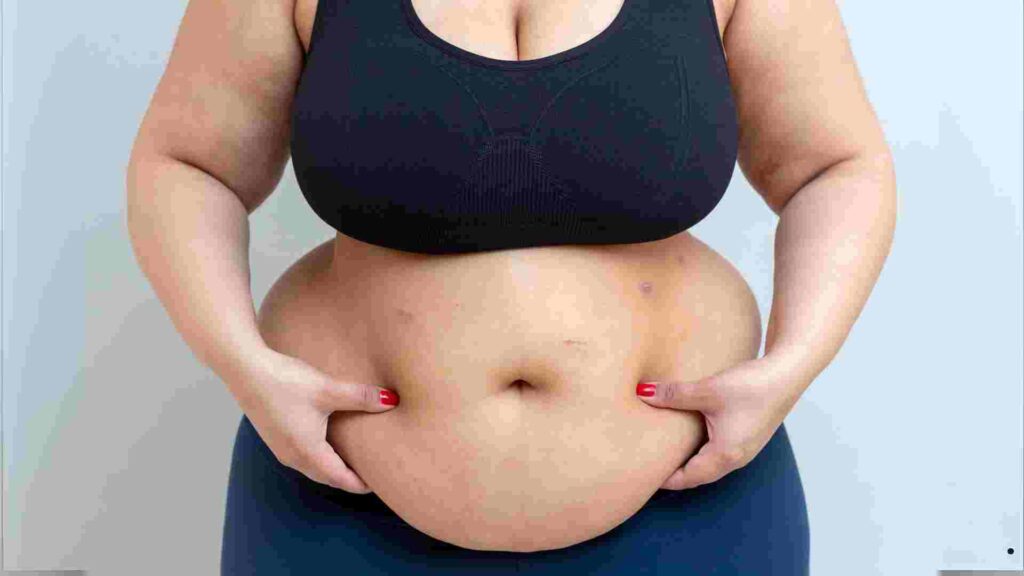How to Burn Fat Without Losing Muscle: Losing fat while preserving muscle mass is a goal for many fitness enthusiasts and beginners alike. Achieving this balance requires a well-thought-out approach that combines diet, exercise, and lifestyle strategies. In this blog, we’ll guide you step-by-step on how to burn fat without losing muscle, tailored for the Indian context.
Table of Contents
Understanding the Science
Before diving into the practical steps, it’s essential to understand how fat loss and muscle preservation work:
- Calorie Deficit: Burning fat requires consuming fewer calories than you expend. However, an extreme calorie deficit can lead to muscle loss.
- Protein Intake: Protein helps repair and maintain muscle during a calorie deficit.
- Strength Training: Regular resistance training signals your body to retain muscle.
Step-by-Step Guide
1. Optimize Your Diet
- Balanced Meals: Focus on a diet rich in protein, healthy fats, and complex carbohydrates.
- Indian Options: Include dal, paneer, eggs, chicken, fish, and soya for protein; ghee, nuts, and seeds for healthy fats; and roti, brown rice, and millets for carbs.
- Avoid Crash Diets: Gradual calorie reduction is better for preserving muscle mass.
- Stay Hydrated: Drinking water supports metabolism and muscle recovery.
2. Strength Training
- Resistance Exercises: Incorporate exercises like squats, deadlifts, bench presses, and pull-ups.
- Progressive Overload: Gradually increase the weight or resistance to challenge your muscles.
- Consistency: Aim for at least 3-4 strength training sessions per week.
3. Incorporate Cardio Wisely
- Low-Intensity Cardio: Walking, cycling, or swimming can help burn calories without risking muscle loss.
- High-Intensity Interval Training (HIIT): Short bursts of intense exercise can be effective but should be balanced with your strength training routine.
4. Prioritize Protein
- Daily Requirement: Aim for 1.6-2.2 grams of protein per kilogram of body weight.
- Indian Protein Sources: Lentils, chickpeas, tofu, yogurt, and nuts.
- Post-Workout Nutrition: Consume a protein-rich meal or shake within 30 minutes of exercising.
5. Get Adequate Rest and Recovery
- Sleep: Aim for 7-9 hours of quality sleep every night.
- Rest Days: Include at least one full rest day per week to allow muscle recovery.
- Stress Management: Practices like yoga and meditation can help reduce stress-induced muscle loss.
6. Track Your Progress
- Body Measurements: Use a measuring tape or body fat calipers to track changes in body composition.
- Weigh Yourself: Monitor your weight weekly, but don’t rely solely on the scale.
- Workout Logs: Keep a record of your exercises, weights lifted, and repetitions to measure strength gains.
7. Supplements (Optional)
- Whey Protein: Convenient for meeting protein needs, especially post-workout.
- BCAAs (Branched-Chain Amino Acids): May help reduce muscle breakdown during workouts.
- Creatine: Can enhance strength and muscle retention during a calorie deficit.
Sample Indian Diet Plan
| Meal | Food Items |
|---|---|
| Breakfast | Oats with milk and nuts, boiled eggs or paneer |
| Mid-Morning | A fruit (apple/banana) and a handful of nuts |
| Lunch | Brown rice, dal, roti, sabzi, and curd |
| Evening Snack | Sprouts salad or a protein shake |
| Dinner | Grilled chicken/fish/tofu with vegetables |
FAQs: How to Burn Fat Without Losing Muscle
Q1. Can I lose fat and gain muscle at the same time? A1. Yes, it’s possible, especially for beginners or those returning after a break. Focus on a high-protein diet and strength training.
Q2. How much protein is too much? A2. Generally, up to 2.2 grams per kilogram of body weight is safe for most people. Consult a doctor or nutritionist for personalized advice.
Q3. Is cardio necessary for fat loss? A3. Cardio helps burn calories but isn’t mandatory. Strength training combined with a calorie deficit is enough for many people.
Q4. Can vegetarians achieve this goal? A4. Absolutely! Include plant-based protein sources like lentils, chickpeas, tofu, and soya chunks in your diet.
Q5. How long will it take to see results? A5. Visible changes can take 6-8 weeks with consistent effort, but this varies based on individual factors.
Q6. What role does hydration play in fat loss? A6. Staying hydrated supports digestion, metabolism, and muscle recovery, all of which are crucial for fat loss and muscle retention.
Q7. Are cheat meals allowed? A7. Yes, occasional cheat meals can help satisfy cravings and boost morale, but they should be controlled and not derail your progress.
Q8. Can I achieve this goal with home workouts? A8. Yes, bodyweight exercises like push-ups, squats, lunges, and resistance band workouts can be effective if performed consistently.
Common Mistakes to Avoid
- Skipping Meals: Leads to muscle breakdown and reduced energy levels.
- Overtraining: Too much exercise without adequate rest can cause burnout and muscle loss.
- Neglecting Nutrition: Poor dietary choices can negate the benefits of your workouts.
- Relying Solely on Cardio: Ignoring strength training can result in muscle loss.
- Inconsistent Effort: Results require dedication and persistence over time.
Conclusion: How to Burn Fat Without Losing Muscle
Burning fat without losing muscle is achievable with the right mix of diet, exercise, and recovery. Focus on gradual progress, listen to your body, and stay consistent. Remember, fitness is a journey, not a destination.
Start implementing these tips today and watch your body transform the healthy way! With discipline and the right strategy, you’ll achieve your goals and feel stronger, leaner, and healthier.

